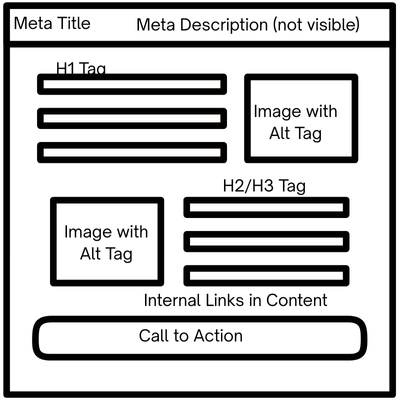Freelancers wear many hats—writer, strategist, developer, and often, marketer. But when it comes to building sustainable online visibility, SEO fundamentals are non-negotiable. With search engines continually updating their algorithms, it’s tempting to chase shortcuts or the latest “growth hacks.” However, the truth is that consistent application of timeless SEO best practices is what drives long-term results for clients and personal projects alike.
In this guide, we’ll explore the essential SEO fundamentals every freelancer should know, covering on-page optimization, technical audits, backlink strategies, and the role of content quality. By mastering these pillars, freelancers can deliver measurable results, build credibility, and retain clients in an increasingly competitive digital market.
Why SEO Fundamentals Matter More Than Quick Wins
SEO isn’t about tricking Google or gaming the system. It’s about aligning your website with user intent and technical standards so that search engines can properly index and reward it.
While quick wins (like exploiting trending topics or temporary link schemes) might provide a traffic spike, they rarely last. In contrast, consistent SEO best practices ensure:
- Sustainable traffic growth over time.
- Higher trust with search engines and audiences.
- Stronger client retention because of predictable results.
Search engines like Google have invested heavily in prioritizing quality, trustworthy content. As stated in Google’s Search Essentials, the fundamentals—crawlability, content quality, and user experience—remain the foundation of SEO success.
On-Page Optimization: The Cornerstone of Freelance SEO

One of the foundational areas freelancers in digital marketing or content creation, should strive to master is on-page optimization. This skill isn’t merely about manipulating keywords; rather, it’s the sophisticated art of crafting and refining each individual web page to serve a dual purpose: being highly discoverable by search engines and, equally important, being genuinely user-friendly for human visitors.
Key elements to focus on include:
- Title Tags & Meta Descriptions
Ensure titles are unique, descriptive, and include target keywords naturally. Meta descriptions don’t directly influence rankings but significantly impact click-through rates. - Header Structure (H1, H2, H3)
Organize content logically with headers that help both readers and search engines understand hierarchy. - Keyword Placement
Keywords should appear in titles, headers, first paragraphs, and naturally throughout the content. Avoid keyword stuffing—it harms readability and SEO. - Internal Linking
Link strategically to other relevant pages on the same site to help distribute authority and guide users. - Image Optimization
Use descriptive file names, alt text, and compressed formats to improve load speed and accessibility.
For a comprehensive overview, Moz’s On-Page SEO Guide provides detailed best practices freelancers can use as a checklist.
Technical SEO Audits: Building a Solid Foundation
A beautifully written blog post won’t rank if search engines can’t crawl and index the website properly. That’s why freelancers need to know how to perform a technical SEO audit.
Areas to cover in a basic audit include:
- Site Speed: Fast-loading websites improve user experience and rankings. Use Google PageSpeed Insights to identify fixes.
- Mobile-Friendliness: With most searches happening on mobile, responsive design is critical.
- Indexing Issues: Check that important pages are indexed and low-value pages are excluded where appropriate.
- Structured Data: Add schema markup for articles, products, or services to enhance visibility in search results.
- Broken Links: Ensure there are no 404 errors or redirect chains that waste crawl budget.
By addressing these technical fundamentals, freelancers set the stage for content and link-building strategies to succeed.
Backlink Strategy: Quality Over Quantity
Backlinks remain a core ranking factor because they signal trust and authority. However, quality matters far more than quantity. A few high-authority links from relevant websites can outperform dozens of low-quality ones.

Freelancers should consider the following strategies:
- Guest Posting: Contribute high-value articles to relevant industry blogs.
- Digital PR: Create share-worthy content such as original research or infographics that naturally earn links.
- Resource Link Building: Get listed on directories or resource pages that are reputable.
- Relationship Building: Network with other freelancers, bloggers, and industry experts for collaboration opportunities.
For an excellent primer, Ahrefs’ Link Building Guide breaks down actionable approaches for building a sustainable backlink profile.
Content Quality: The Heart of SEO Success
At the end of the day, content is what keeps users engaged. Search engines reward sites that deliver helpful, authoritative, and original information. For freelancers, this means:
- Understanding User Intent: Create content that solves problems, answers questions, or fulfills search intent.
- E-E-A-T Principles (Experience, Expertise, Authoritativeness, Trustworthiness): Especially important in niches like health, finance, and legal.
- Content Depth: Aim for comprehensive guides rather than thin, surface-level articles.
- Freshness: Update older content regularly to keep it relevant.
- Readability: Use clear formatting, short paragraphs, and visuals for better user experience.
Remember: ranking high in search results is only half the battle. The true win comes when content delivers so much value that users stick around, share it, or convert into leads.
Putting It All Together: SEO for Freelancers
For freelancers, mastering SEO fundamentals isn’t just about ranking higher—it’s about building a repeatable framework that works across multiple clients and industries. By combining on-page optimization, technical audits, backlink strategies, and content quality, you’ll not only improve search performance but also stand out as a reliable professional who delivers consistent value.
FAQs
1. What are SEO best practices every freelancer should know?
Freelancers should focus on on-page optimization, technical SEO audits, building high-quality backlinks, and creating valuable, user-focused content.
2. Why do SEO fundamentals matter more than quick wins?
Fundamentals provide long-term, sustainable growth, while quick wins are often short-lived and can even harm rankings if they involve risky tactics.
3. How often should freelancers perform technical SEO audits?
At least quarterly, but more frequently if a website is large, complex, or undergoing frequent updates.
4. What’s the most important part of SEO for freelancers?
All parts work together, but content quality and technical site health form the foundation. Without them, even strong backlinks or keywords won’t deliver results.
5. Can freelancers handle SEO without expensive tools?
Yes. Free tools like Google Search Console, PageSpeed Insights, and keyword planners provide enough data to get started. Paid tools simply add more depth and efficiency.
Final Thoughts
The SEO landscape may evolve, but the fundamentals remain the same. As a freelancer, building your career on solid SEO best practices will not only boost your clients’ rankings but also your reputation as a trusted professional.If you have questions about applying these strategies or want help creating a tailored SEO plan, don’t hesitate to contact Amanda for guidance.

